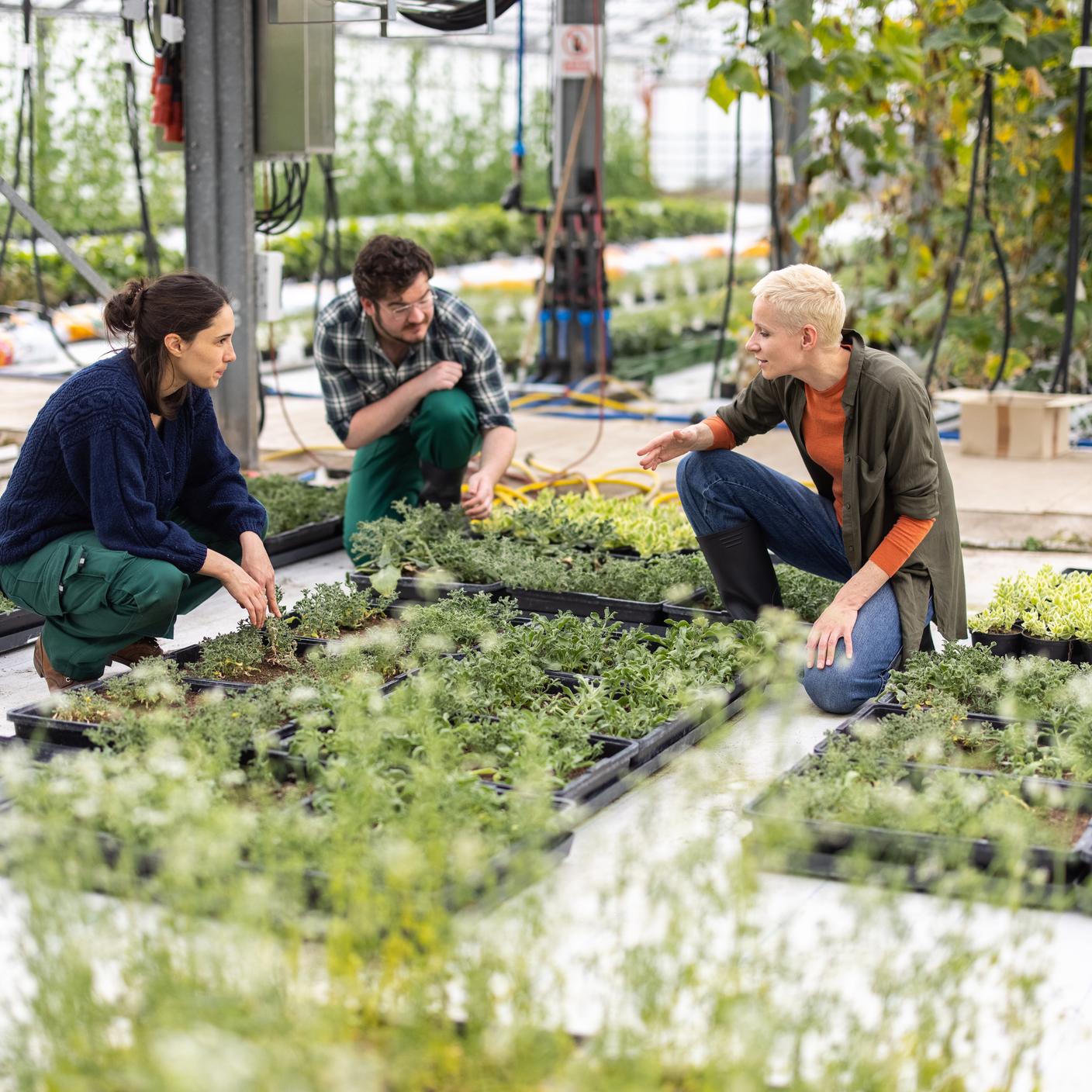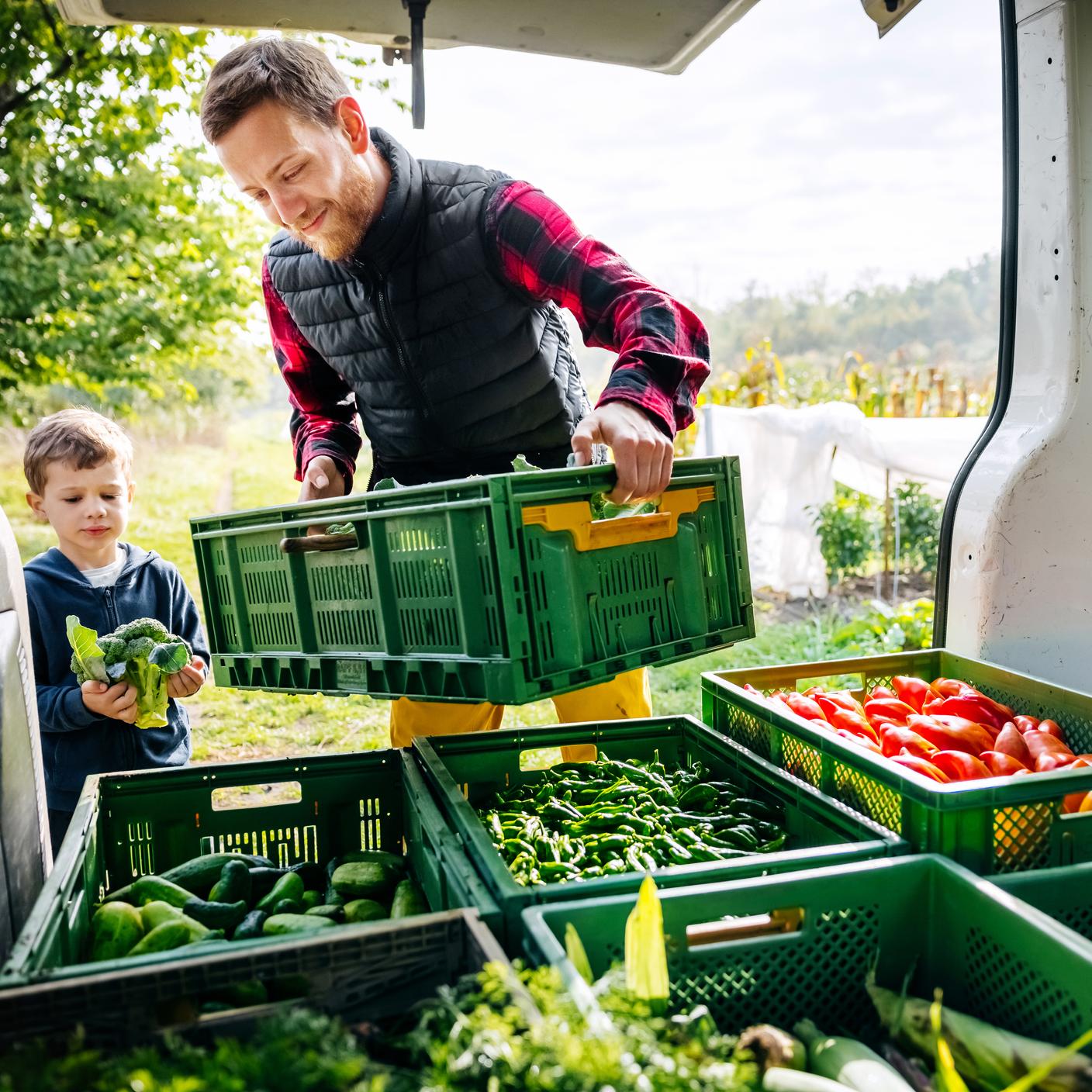The world faces a critical challenge at the intersection of food security and environmental sustainability.
Statistics cited by the UN suggest that food production must increase by as much as 70% to feed a growing global population that is predicted to exceed 9.7 billion in 2050. However, agricultural yield increases alone are unlikely to bridge the gap.
Given escalating climate change concerns, dramatically expanding agriculture land isn’t feasible. Instead, making better use of existing land both in terms of productivity and sustainability will be vital.
While the global food system contributes to 26% of global greenhouse gas emissions, it is also vulnerable to the effects of climate change such as droughts, floods and changes to soil fertility. Further, the fact that one third of all food produced is wasted remains a major cause for concern.
Addressing such immense sustainability and availability challenges demands greater efficiency, productivity and resiliency – an area in which data-driven food systems are poised to be instrumental.
The power of data
Data-driven food systems are capable of revolutionising food production, distribution, and consumption by harnessing advanced technologies and data analytics.
By leveraging big data and analytics throughout the food chain, companies can create sustainable value, optimise operations, improve sourcing, and implement circular economy solutions.
At present, there are several examples of data being used to enhance various aspects of food systems. These include:
- Precision agriculture: Optimises agricultural production by leveraging technology, data analytics, and specialised equipment to manage fields efficiently. This results in more effective use of resources such as water, fertilisers, and pesticides while reducing waste and environmental impact.
- Supply chain management: Here, data can drive innovation, profitability, and sustainability from farm to fork through measures such as improved forecasting, food traceability, safety measures, and waste reduction.
- Consumer behaviour: Data-driven food systems can also be used to analyse food purchasing habits and consumption patterns, providing a better understanding of changing preferences and opportunities to promote healthy eating habits.
AI and robotics in action
Today, essential data streams underpin AI and robotics innovations across various fields. In agriculture, for example, predictive AI solutions use advanced algorithms and data analytics to unlock intelligent forecasting that allows farmers to proactively prevent losses and make improvements.
One prevalent example of this is weather forecasting. With weather data, satellite imagery, and climate models, historical weather patterns can be analysed to predict future conditions like rainfall, temperature, and humidity.
In addition, AI models can predict crop disease outbreaks. Looking at historical disease data, transmission dynamics, and environmental factors, epidemiological models can forecast occurrences, pinpoint high-risk areas, and suggest preventive measures.
While these solutions are designed to empower farmers to mitigate risks through adaptive management practices, agri-food robots are also serving to revolutionise farming practices, labour dynamics, and food production efficiencies.
Many farmers have already adopted automated milking machines and crop-picking robots to enhance production efficiency and animal welfare. And it’s not just on-farm where AI and robotics are playing a vital role.
Indeed, such technologies are also being applied in optimising production and packaging processes, where automated systems can reduce downtime and human error, ensuring a consistent production pace that meets consumer demands effectively.
The role of international standards
While such innovations are imperative given current global challenges, it is important that food security remains protected from the risks associated with industry transformation.
Here, international standards can be a useful tool to ground new systems and solutions, ensuring that they address food security challenges in a safe and sustainable way. By outlining best practices, they can help to promote safety, quality, and efficiency across the entire food industry.
From farmers to retailers, every stakeholder in the food supply chain stands to benefit from adhering to the guidelines and best practices outlined in standards. Not only can they provide the blueprints to streamline processes and boost efficiencies, but they are also key in elevating safety measures, enabling businesses to align with regulatory mandates.
Global examples of data-driven food systems
With the support of standards, an effective data-driven food system can be developed – of which there are already many examples.
In the case of agriculture, the biotechnology company Antler Bio is a case in point. Having received a Smart Grant from Innovate UK, the company that specialises in combining epigenetic testing of livestock with AI-driven data analysis launched ‘EPIHERD’. This platform, coined as a precision herd screening tool, provides farmers with insight into prominent genes that are influenced by specific environmental factors around them. In turn, this means they can alter factors that are within their control to improve productivity and sustainability.
Turning attention to retailers, US supermarket chain Kroger is working with Retail Insight to optimise inventory and reduce food waste. Through Retail Insight’s industry-leading WasteInsight solution, the company is using machine learning to tackle surplus food waste throughout its ecosystem, optimising its use of discounts to maximise sell-through and reduce waste.
The future of food
From precision agriculture and predictive analytics in crop management to supply chain optimisation and climate change adaptation, the host of exciting possibilities of data-driven food systems are seemingly endless.
In the future, greater data and insight into the entire food value chain will pave the way for value-added solutions such as personalised nutrition plans tailored to the specific needs of individuals. Not only could these models aid dietary behavioural changes and drive measurable health benefits, but they may also reduce the consumption of animal products to help combat the climate crisis.
Data can also help to drive down food waste. Indeed, we’ve already seen instances of this being put into practice, with major food service provider ISS using data insights to achieve a collective annualised saving rate of 985,000 tonnes of food waste for its customers. In identifying that production trimmings, plate waste and the over production of main meals contributed to almost 60% of the total food waste generated in the business, the company has been able to save 2,463,000 meals and reducing CO2 emissions by 4,200 tonnes.
Moving forward, the widespread adoption of initiatives and technologies such as these will be critical, collectively unlocking incremental productivity and efficiency improvements that will in turn increase food security, resilience, and access globally.
Now is the time to embrace data-driven food systems
Faced with the current mix of global challenges, embracing data-driven food systems is not a luxury but an imperative – new approaches and technologies must be prioritized.
Now is the time for modern food systems to rise to the fore, with standards set to play a key role in enabling businesses to establish best practices in their innovations, ensuring that the global supply chain remains protected during this immense industry transformation.
BSI Knowledge is a valuable resource offering solutions and guidance for businesses seeking to implement data-driven practices and achieve compliance with relevant standards. We offer over 800 food & retail standards, enabling agri-food businesses to keep a finger on the technology pulse and operate more effectively in a global market. Request a live demo today to find out more information.
Learn more about BSI Knowledge here.
Specific standards:
For those interested in detailed standards related to the topics covered:
- Agricultural robotics: BS 8646 Use of autonomous mobile machinery in agriculture and horticulture.
Outlines the code of practice for the safe and confident usage of autonomous mobile machinery in agriculture and horticulture. - Data quality: BS 10102 Big data - Guidance on data-driven organizations
Gives guidance on realizing value from data, including big data, such as gaining insights, informing strategies, enhancing reputation, and improving compliance, efficiency and performance. - Food safety: BS EN ISO 22000 Food safety management systems
This standard provides an excellent framework for implementing a food safety management system, helping organisations to deliver food that’s safe to eat. - Food traceability: BS EN ISO 22005 Traceability in the feed and food chain
Establishes principles and requirements for food traceability systems, helping to maintain visibility during food manufacturing, processing, distribution, and handling. - Environmental management: BS EN ISO 14001 Environmental management systems
Provides guidance on business procurement, storage, distribution, product development and manufacturing to reduce environmental impact and improve stakeholder relationships. - AI standards: BS ISO/IEC 42001 Artificial intelligence management system
Provides a certifiable AI management system framework within which AI products can be developed, helping businesses and society get the most benefit from AI.








